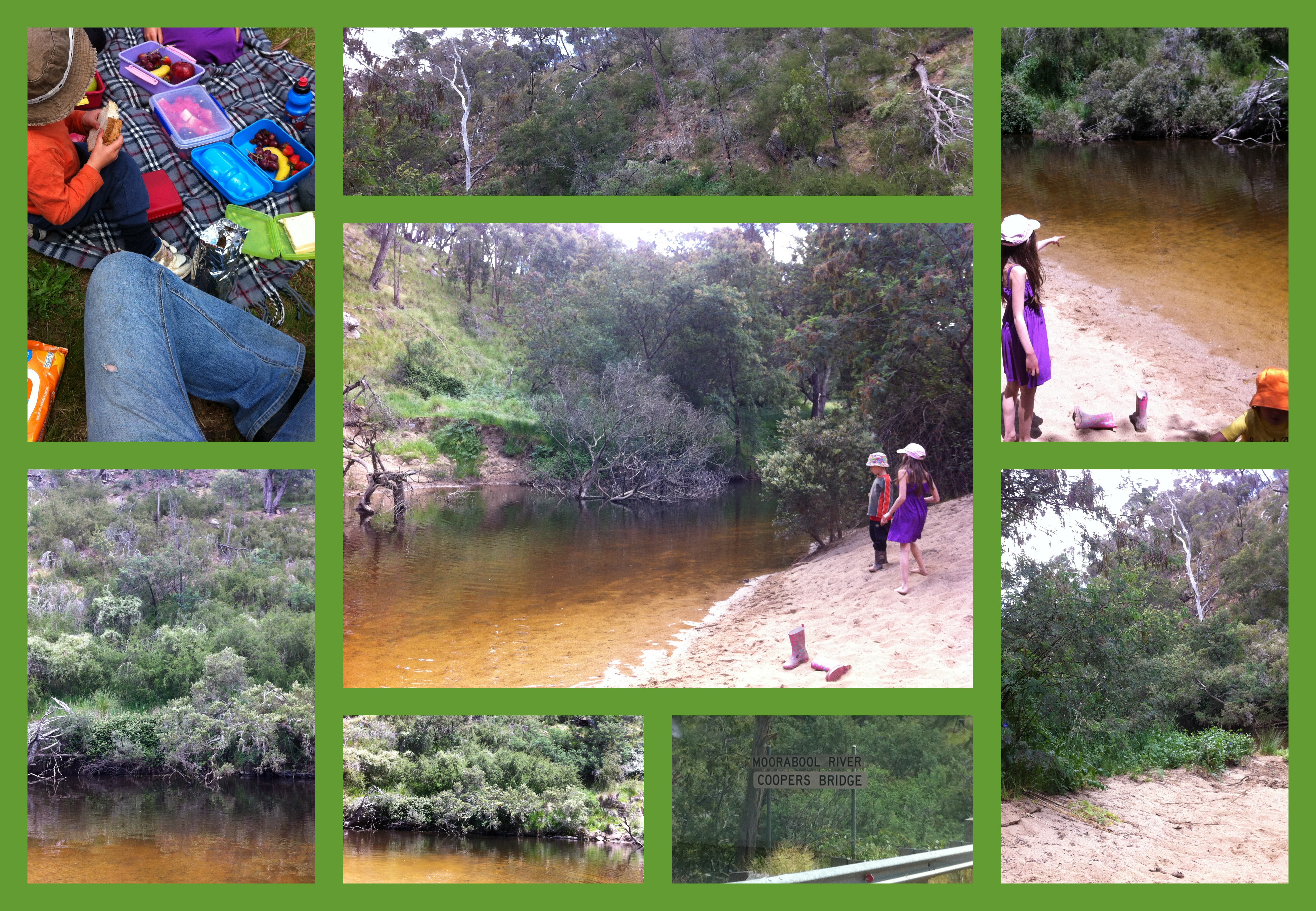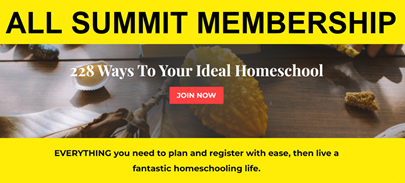|
What is Outdoor Education?
by Anabel Matchan, Apr 2013
Outdoor education usually refers to learning that takes place in the outdoors . Structured Outdoor education programs involve residential or journey -based experiences in which students participate in a variety of adventurous challenges in the form of outdoor activities such as hiking , climbing , canoeing , ropes courses and group games .
So yesterday we decided to take the classroom outdoors with a trip to the river.

It was an awesome afternoon and possibly our last nice, warm day. We took the blow up boat, some boogie boards and some friends. Although the water was a little on the chilly side, the children braved the cool waters.
So how would you write up an afternoon in the sun, frolicking in the fresh water for your report?
First of all you need to know how the NSW Board of Studies views Outdoor Education.
"This domain is unique in having the potential to impact on the physical, social, emotional and mental health of students. It promotes the potential for lifelong participation in physical activity through the development of motor skills and movement competence, health-related physical fitness and sport education.
Engaging in physical activity, games, sport and outdoor recreation contributes to a sense of community and social connectedness. These are vital components of improved wellbeing.
Students' involvement in physical activity can take many forms, ranging from individual, non-competitive activity through to competitive team games. Emphasis is placed on combining motor skills and tactical knowledge to improve individual and team performance. Students progress from the development of basic motor skills to the performance of complex movement patterns that form part of team games. They learn how developing physical capacity in areas such as strength, flexibility and endurance is related to both fitness and physical performance."
Foundation to Level 4 - Laying the foundations
"Learning in Health and Physical Education lays the foundations for the development of fundamental or basic motor skills that will assist students to participate in physical activity and in a healthy and active lifestyle.
During this stage, students begin to develop basic motor skills and movement patterns, including locomotor and manipulative skills, in a range of movement environments (indoor, outdoor and aquatic). . Teachers should aim to teach for skill mastery rather than just skill awareness. This requires direct teaching of the components of basic motor skills.
At the beginning of this stage, students develop basic motor skills such as running, hopping, jumping, skipping, catching, throwing, kicking, rolling, balancing, twisting and turning. Later they develop the capacity to link these skills into more complex and coordinated movement sequences.. Students will also begin to use basic tactics in appropriately modified games and sport-specific situations, and apply their increasing knowledge of rules to keep games and activities safe.
Through participation in physical activity, students develop their movement vocabulary, including motor terms and ways of describing the physical responses of their bodies to movement and feelings associated with participation in physical activity..As students grow and develop, they become more aware of the broader world - of others' views and perspectives, how people differ, and the physical and social environments in which they live, learn and play. They become more skilled at observing what makes familiar environments safe or unsafe and healthy or unhealthy. Their increasing capacity to question allows them to consider how they would respond to different scenarios where their health or safety could be threatened.(AUSVels. 2013) For a copy of the full domain descriptions visit: http://ausvels.vcaa.vic.edu.au/
So what does this all mean?
How does that translate to English.
My fellow homeschooling mum, Hilary and I sat on the bank and reeled off some points that essentially cover this area, in mumspeak:
- collaboration
- leadership
- following directions
- respect
- responsibility
- awareness
- co-ordination
- use of equipment
- care of equipment
- perserverance
- participation
- multi-age group- understanding different abilities and modifying communication and skills set
- problem solving
- communication
- water safety
- balance
- weight distribution
- trial and error
All of these skills were trialled, experimented with, analysed and evaluated all in an afternoon activity, plus many more that I havent ventured into, simply by taking an inflatable boat, some boogie boards and a couple of friends down to the river.
What did you do today?

Home educating mum Anabel Matchan is a certified registered primary teacher, currently completing a Diploma in Montessori. She's passionate about Montessori education and loves working with children. Through Homeschool Connections she shares the years of classroom experience, activities, solutions, strategies, teacher talk and edubabble that rattles around in her head.

Was this article helpful? Was it worth $1.00 to you?
Your gift of $1 or more helps to keep this site operating
offering encouragement
and reassurance to families
wanting
better outcomes for their children.



Beverley Paine with her children, and their home educated children, relaxing at home.
Together with the support of my family, my aim is to help parents educate their children in stress-free, nurturing environments. In addition to building and maintaing this website, I continue to create and manage local and national home educating networks, help to organise conferences and camps, as well as write for, edit and produce newsletters, resource directories and magazines. I am an active supporter of national, state, regional and local home education groups.
"You've been an inspiration to me, I love the way
you really listen to people." Vanessa
"Whenever I read your writing I always come away
with increased confidence in my ability to provide and
share a wonderful learning journey with my family!" Davina
"Your guidance, understanding, support and words of
wisdom changed our lives. We now offer support and
organise many homeschooling events for others." Lesley
"Thank you once again for your prompt and friendly service.
I am convinced that your books are going to add
quality and peace of mind to my journey of teaching my kids
at home! Just from studying your website, until almost
2am
in the morning, I 've been encouraged!" Louisa
"Thank you for all your many,many reassuring words
over many, many years. You probably don't know exactly how
valuable you are to the Australian Home Education community.
I've been reading your stuff for maybe 8 years or more now.
And I'm very grateful." Gythaa


Want to learn how to write your own education plans
to suit your unique children's individual learning needs?
Or you are looking for quality curriculum and teaching tips...
Comprehensive 3 workbook 'how to home ed' course
covering the essential skills you need
successfully home educate your children

|
|
Welcome to the World of Home Education
and Learning without School!
We began educating our children in 1985, when our eldest was five. In truth, we had helped them learn what they need to learn since they were born. I am a passionate advocate of allowing children to learn unhindered by unnecessary stress and competition, meeting developmental needs in ways that suit their individual learning styles and preferences. Ours was a homeschooling, unschooling and natural learning family! There are hundreds of articles on this site to help you build confidence as a home educating family. We hope that your home educating adventure is as satisfying as ours was! Beverley Paine
3 ESSENTIAL STEP BY STEP GUIDES
Let experienced home educators Beverley, Tamara and April walk you through HOW to create a learning plan that builds on solid foundations that works for YOUR family AND ticks all the boxes for home educaton registration!
|

Tap into Beverley's
experience
through her books
"Your books, your blogs helped me beyond words... they helped me to find comfort in knowing it is ok to choose exactly what is best for my family." Nisha
"Your books and information are mind blowing and already I am feeling good about this new experience." Diane
"Your guidance, understanding, support & words of wisdom changed our lives." Leslie
"I feel specially inspired by Beverley's words and, the more I read her comments, the more inspired I feel, since my need for support, respect for different parenting styles, and information are fully met." Marijo
|
 |
|



The information on this website is of a general nature only and is not intended as personal or professional advice. This site merges and incorporates 'Homeschool Australia' and 'Unschool Australia'.
The Educating Parent acknowledges the Traditional Aboriginal and Torres Strait Islander Owners, the Custodians of Australia, and pay our respects to Elders past and present and extend that respect to Aboriginal and Torres Strait Islander people viewing this website.

Advertise on this site.








Home education is a legal alternative
to school education in Australia.
State and Territory governments are responsible
for regulating home education and have different
requirements, however home educating families
are able to develop curriculum and learning programs
to suit the individual needs of their children.

Without revenue from advertising
by educational suppliers and Google Ads
we could not continue to provide information
to home educators. Please support us by letting
our advertisers know that you found them on
The Educating Parent. Thanks!
|
![]() About
About
![]() Blog
Blog
![]() Articles
Articles
![]() Curriculum
Curriculum
![]() Resource Directory
Resource Directory
![]() Shop
Shop
![]() Facebook
Facebook

![]() SA
SA ![]() VIC
VIC ![]() NSW
NSW ![]() QLD
QLD ![]() TAS
TAS ![]() ACT
ACT ![]() NT
NT ![]() NSW
NSW ![]() QLD
QLD ![]() SA
SA ![]() WA
WA ![]() TAS
TAS ![]() ACT
ACT ![]() NT
NT 
















